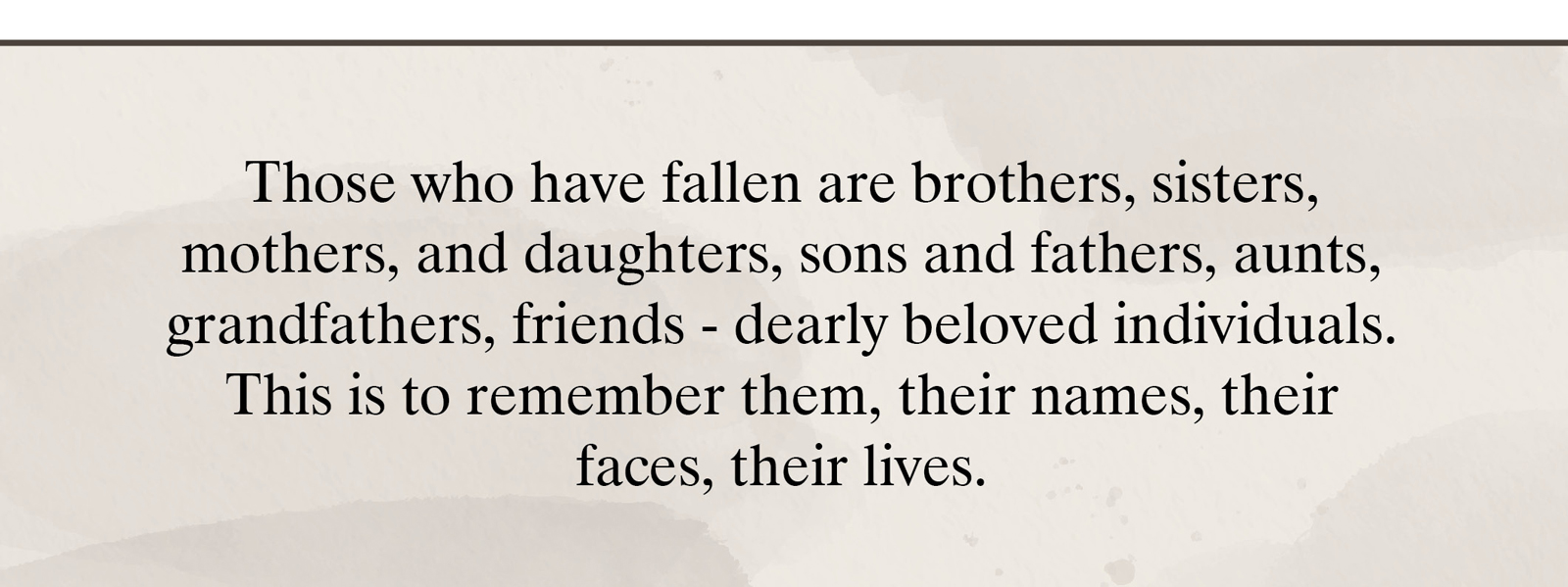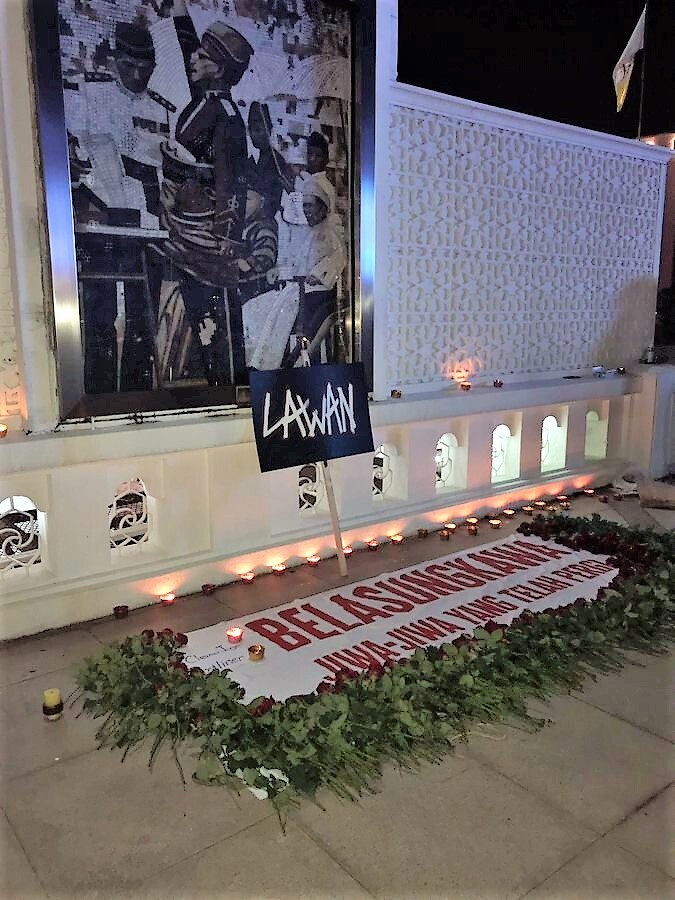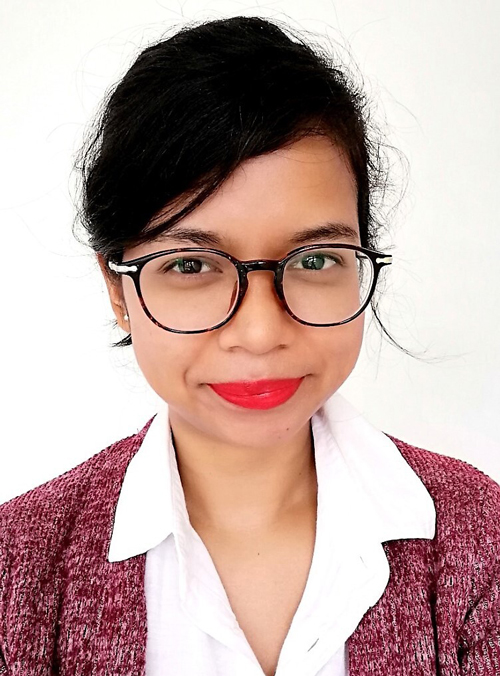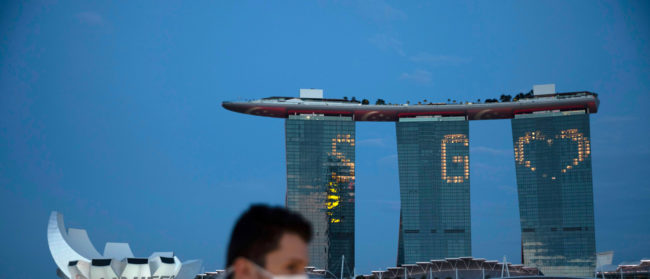Frustrated with the increasing Covid-19 death toll in the country, many Malaysians went online with their exasperation.
One of them was Aidila Razak, a journalist at the online news portal Malaysiakini.
“When we hit 10,000 deaths, I just really felt like someone had to do something,” Razak said.
She took to Twitter and put out a call for anyone willing to collaborate on a website commemorating the lives taken by the virus. She was joined by people from different backgrounds ranging from journalists to web developers who came together to launch an online memorial in remembrance of Malaysia’s victims of the pandemic.

Malaysia had more than 21,587 deaths and 2 million cases of people who tested positive for the virus as of 15 September.
As part of her job at Malaysiakini, Razak joined a team reporting the number of daily Covid deaths. “The Ministry of Health would give details of each death. How old they were, how long they were in hospitals, it’s quite basic and dry. But when you log it every day, it really changes your life,” she said, believing there was a need to humanise the statistics.
Razak remembers the overwhelming number of messages from people who wanted to contribute.
“We were a bunch of complete strangers,” she said of the reactions to her project proposal on Twitter. Four days later, the team members behind the site had their first meeting.
Visitors to the website are met with paragraphs plastered across the screen, including one comparing the online memorial to a physical monument: “In Kuala Lumpur stands the Tugu Negara – the National Monument – dedicated to remember the 11,000 people who died during World War I, World War II, and the 12-year Malayan Emergency,” the site reads.
We started this when it was 10,000 deaths. That was a month ago. Now it’s about 19,000.
The website, which is timed to launch on 16 September to coincide with Malaysia Day, will accept tributes indefinitely.
“When it hits a number like 10,000 deaths, [the virus] feels much closer to us. It compelled everyone to contribute and to honour the lives already taken. Although it might not be people related to us, it might be some of our friends and their families,” said Jackie Koh, one of the website’s team of volunteers.
With the ruthless Delta variant running amok in the country and the political turmoil resulting from Muhyiddin Yassin’s short stint as prime minister from March 2020 to August 2021, the 58th Malaysia Day, the national patriotic holiday, may be met with a twinge of concern and even sadness.
A candlelight vigil at Merdeka Square in Kuala Lumpur organised last month by an activist movement in honour of Covid-19 victims ended with 31 participants forcefully dragged into a Black Maria, a police truck used to transport arrestees.
“Other than [the candlelight vigil], I don’t see any sort of remembrance or anything done about the fact that so many people have died,” Razak said in early September. “We started this when it was 10,000 deaths. That was a month ago. Now it’s about 19,000.”

Although the situation in Malaysia is grim, the situation was vastly different just last year.
The health ministry’s director-general, Datuk Dr Noor Hisham Abdullah, was recognised as one of the “top doctors” in the world for his exceptional handling of the outbreak, alongside fellow virus experts Dr Anthony Fauci in the United States and New Zealand’s Ashley Bloomfield. The recognition was celebrated by many Malaysians.
After a relatively calm 2020, the following year included spikes of Covid-19 cases fueled by the Delta variant, causing a limbo between opening the economy and retreating into lengthy lockdowns. This led to an alarming number of suicides, an overwhelmed healthcare system with doctors going on strike and an increasing number of Covid-19 victims who were “Brought-In-Dead,” a category for those outside any healthcare facility who succumbed to the virus unexpectedly, unaware they had been infected.
A week before his 55th birthday, Chew Kar Yuen, a father of two daughters, lost his battle with the virus.
“He gave us the best life he could afford and was the friend many could count on. Though we did not have a chance to say our goodbyes properly, his legacy lives on forevermore,” wrote Samantha, one of Chew’s daughters, in an entry for the online memorial.
One can say there is a certain compartmentalising comfort to the rituals, which allows us to leave the outside world and all the roles we play
When a loved one is abruptly taken, what comes next is a mixture of shock, loss, horror, anger and guilt, said Catherine Ooi, a death doula and general manager of Kasih Hospice Foundation.

When the expectation of a loved one recovering from Covid-19 does not align with reality, the intense grief can be a shattering experience. Grief is necessary, Ooi said. “It helps us say goodbye, but it also helps us say hello again.”
Death rituals provide something priceless to those involved. “One can say there is a certain compartmentalising comfort to the rituals, which allows us to leave the outside world and all the roles we play, and enter a space that allows healing, honouring and expressing true thoughts and remembrances to take place,” Ooi said.
Just like hospital visitations and funerals, morgues and crematoriums must adhere to strict operating procedures.
Family members aren’t allowed to enter morgues to identify bodies. “The only thing we can do is send the family members a photo [of the deceased] through WhatsApp,” said Kevin Lee, a funeral service worker in the greater Klang Valley where deaths are the most rampant.
Incinerators work overtime due to the hurried funeral and cremation services to meet the demands of processing the number of bodies multiplying as more die from the virus, he told the Globe.
Grief comes in many forms, and it comes in waves.
Going through the stories and photos submitted to the online memorial site, Razak was overwhelmed by her emotions spurred by images of the victims.
“When you look at the pictures people submitted. Pictures of him and his grandchild, celebrating his 50th birthday,” she said of one entry. “It really makes you feel.”
“Ah…” she lamented, “look at all of these people that we have lost.”


